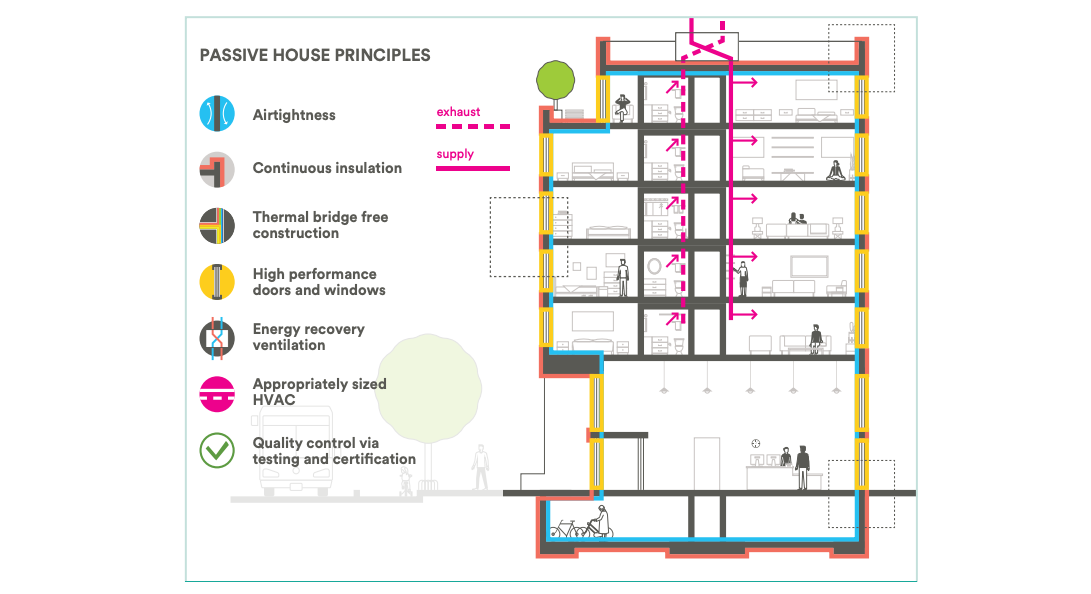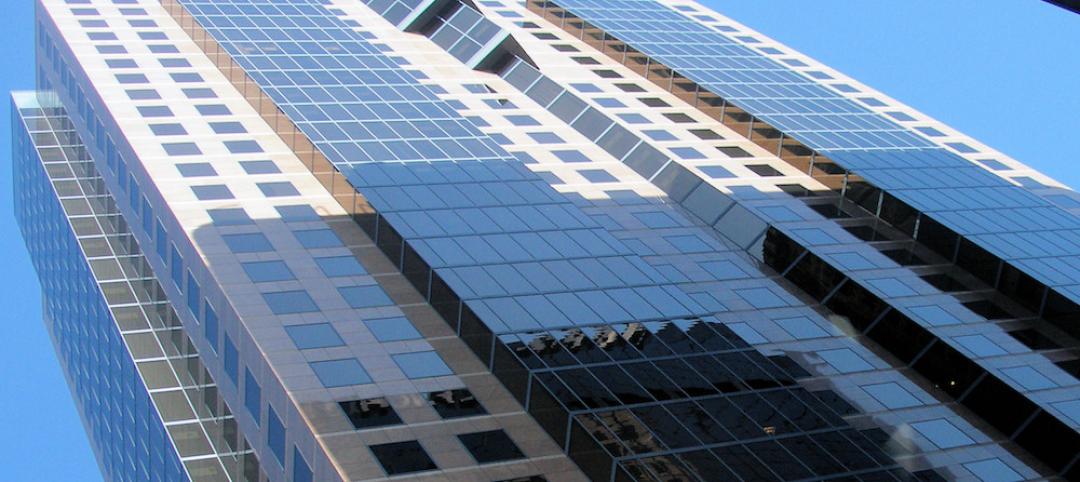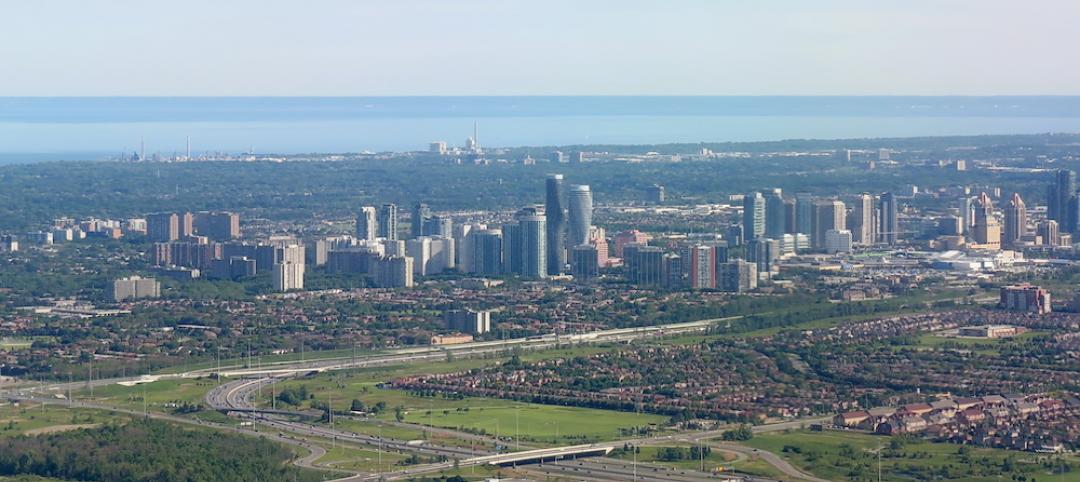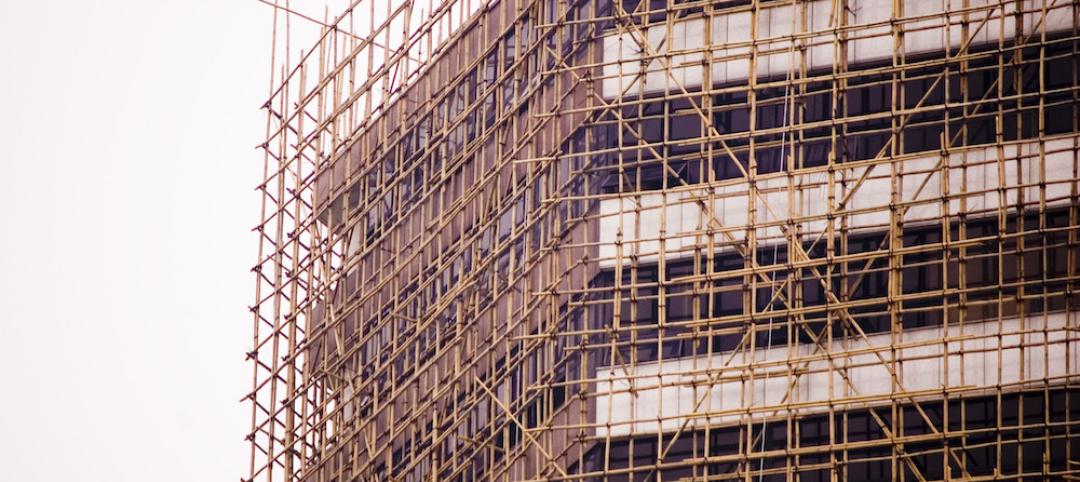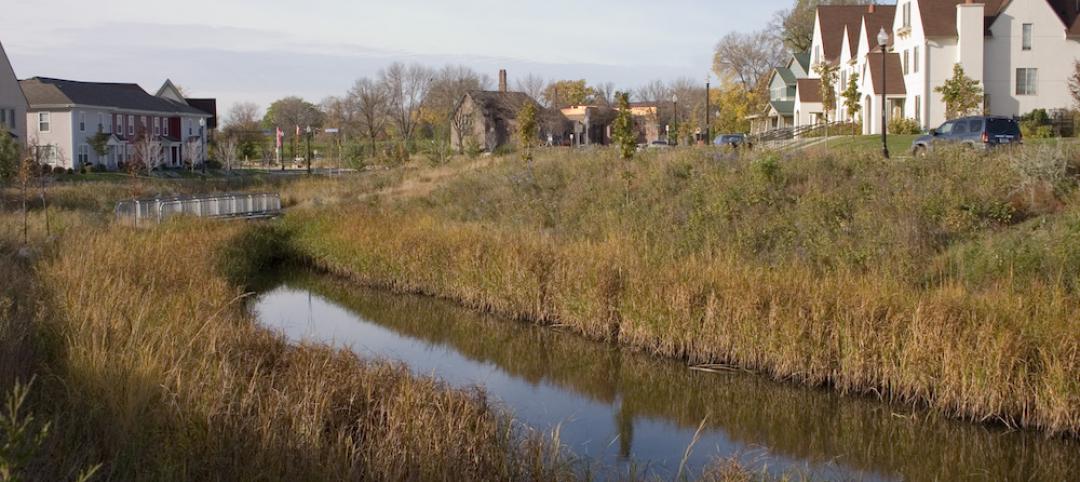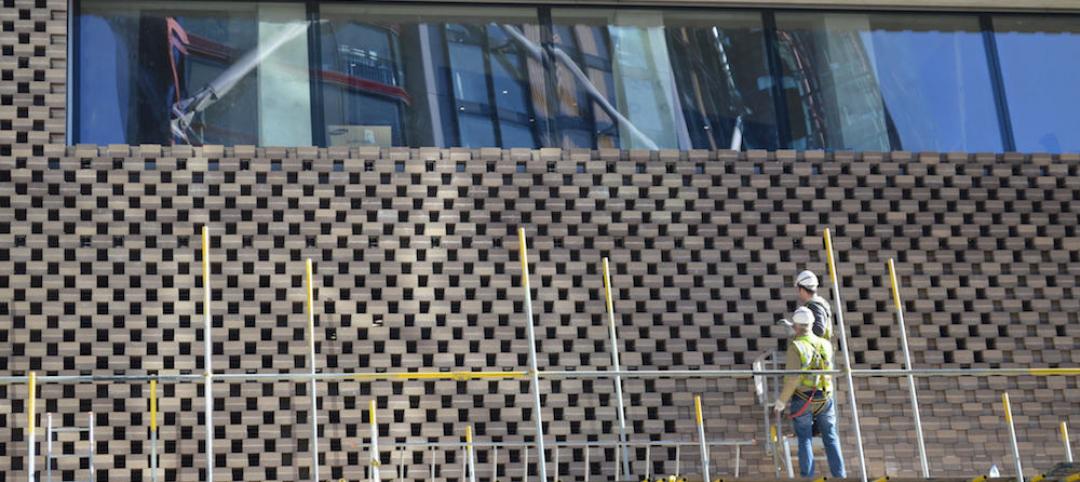A recent study from the New York City Department of Housing Preservation and Development, the Community Preservation Corp., BrightPower and Steven Winter Associates, found that multifamily dwellings built to Passive House standards significantly outperformed conventionally built buildings in energy efficiency.
The study compared Passive House structures to two control groups: one consisting of New York City multifamily buildings built before 2003, and the other comprised of conventional new construction properties built after 2003. When comparing energy use, the Passive House buildings outperformed the post-2003 buildings by 32% to 58%.
Passive House upfront costs are up to 5% higher than conventionally built structures. But, the report asserts that the cost premium is likely to decrease as components become more widely available and cost-efficient.
Obstacles to wider Passive House adoption include a lack of experience and familiarity with the process of designing and building larger-scale Passive House developments among contractors and owners. The study also found that Passive House residents enjoy more consistent interior temperatures, humidity levels, and better acoustic comfort than those living in traditional buildings.
Related Stories
Codes and Standards | May 25, 2016
LEED Dynamic is worth the effort, says commercial real estate executive
San Diego office tower is California’s first office building to receive LEED Dynamic plaque in recertification.
Codes and Standards | May 24, 2016
Ontario planning to spend $7 billion on wide-ranging climate change plan
Includes financial incentives to retrofit buildings.
Codes and Standards | May 23, 2016
Facility managers say Internet of Things, analytics will impact maintenance soon
More reliable data needed for optimal results from the technology.
Codes and Standards | May 20, 2016
Industry leaders call for wider use of bamboo as a building material
Benefits include seismic resiliency and sustainability.
Codes and Standards | May 19, 2016
Asphalt roofing group publishes updated shingle installation guide
Technical manual provides best practices for roofing professionals.
Codes and Standards | May 16, 2016
EPA proposes new stormwater discharge regulations for construction sites
Would apply to sites of one or more acres.
Roofing | May 16, 2016
New guide focused on increasing energy and structural performance with raised-heel trusses
Higher trusses simplify attic ventilation, leave more space for insulation.
Codes and Standards | May 11, 2016
Current California seismic codes provide safety, resiliency, but needed upgrades present challenge
Los Angeles requires seismic retrofits, but other cities do not.
Codes and Standards | May 10, 2016
Apple spars with Cupertino, Calif., mayor over strained city infrastructure
Apple’s new ‘spaceship’ campus project prompts questions about whether the company should pay more to offset traffic woes.
Codes and Standards | May 9, 2016
Safety Stand-Down yields proposals to boost construction safety
One example: Gilbane encourages safety harnesses for all working above 6 feet.


